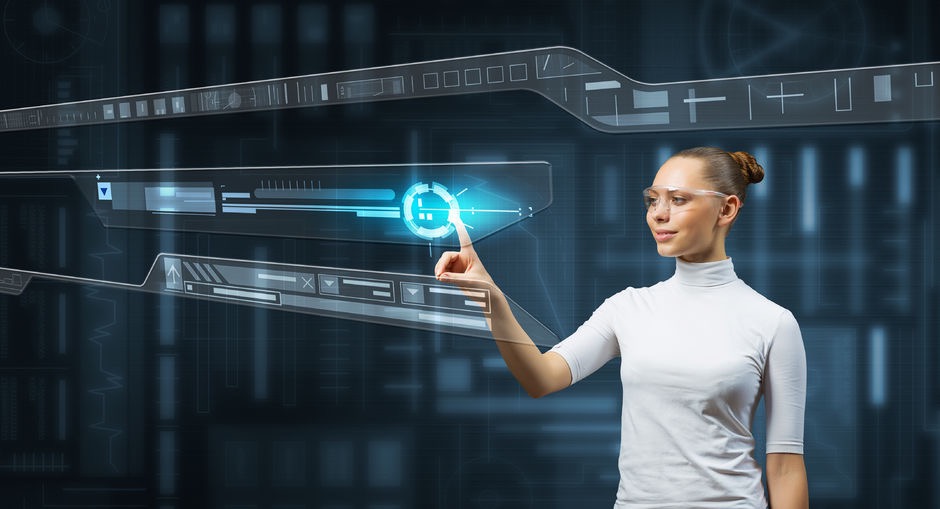NTT Ltd., a leading global technology services provider, today announces its ‘Future Disrupted: 2021’ technology trends predictions. Based on the critical technology trends forecasted to drive change, combined with key insights from NTT’s experts, the trends serve as a guide for businesses looking to seize the opportunities and benefits that these technologies bring.
The disruptive technologies, which are forecast beyond 2021, reflect the impact that the COVID-19 pandemic has had on accelerating the digital transformation of society. NTT Ltd. believes there are five key disruptive technology trends that hold promise to help businesses realize safety and security, support sustainable growth and reduce environmental loads:
- All-photonics networks (APNs) will power global communications: APNs will enable end-to-end, information transmission between the terminal and the server and will allow us to operate in an ultra-low power intensive sustainable communications environment.
- Cognitive Foundation (CF) technology will connect and control everything: The centralized management and agile allocation of ICT resources will provide the ability to integrate various sensor information – voice, video or other – to support Internet of Things (IoT) initiatives.
- Digital twin computing (DTC) will enable predictive analytics by integrating the real and virtual worlds: DTC will test different environments by freely copying, combining and exchanging various digital twins of ‘things’ and people. This information will be integrated into applications such as traffic congestion prediction systems, and can make accurate predictions in the field of disease control.
- The evolution of the ‘citizen developer’ and robotic process automation will reshape businesses: Low-code/no-code platforms built to enable anyone to create business applications using their company data will be a significant differentiator for businesses. The ‘citizen developer’ approach is also utilizing robotic process automation to automate certain business processes, allowing employees to spend time on higher-value work.
- Quantum and edge computing will usher in a new era of computing: More computational work could be done locally at the edge, rather than in the central cloud which can cause delay. For example, a car’s computer vision system would process and recognize images immediately rather than sending that information to the cloud for verification.
While these disruptive technologies are on the horizon, in the nearer term, these trends are driving the need for digital transformation as they enable businesses to deliver superior, more connected, seamless and positive customer and employee experiences. In fact, because of this, NTT Ltd. predicts that digital transformation in 2021 will be an imperative for businesses, not a choice.
As revealed in NTT’s 2020 Global Customer Experience Benchmarking Report, a positive employee and customer experience (EX & CX) will be the foundation on which business strategies are built in the future. This is supported by further NTT research in which 72% of Asia Pacific organizations cited improved CX as the top factor driving their digital transformation.

Andy Cocks, Chief Go-to-Market Practices Officer at NTT Ltd.
Commenting on the predictions, Andy Cocks, Chief Go-to-Market Practices Officer at NTT Ltd. says, “In 2021, we predict that CX success will depend on whether you have a data-driven and well-documented strategy in place. The immense amounts of customer data that most organizations access, capture and manage from multiple sources are only set to grow in the year ahead.”
Andy continues, “Automation will also play a critical role in employee experience initiatives. NTT predicts to see advances in and adoption of robotic process automation, machine learning and AI. Employers are having to think hard about optimizing for employee wellness and safety. Identity, data and analytics, collaborative tools, security and automation will become the foundations for enhancing employee experience and, importantly, employee wellness.”
Lastly, cybersecurity must underpin everything that is implemented as its impact on both customer loyalty and employee wellbeing will intensify moving into 2021. NTT’s Intelligent Workplace Report also indicated that 93.2% of Asia Pacific organizations have completely re-thought their security to accommodate new ways of working brought about by the pandemic. Training on new applications and new ways of working seems to be low on the agenda (in place for just 48.7% of Asia Pacific organizations), which presents a high level of risk. Informing employees about updates to security policies, and completing security awareness programs,how these will support them in their day-to-day activities – regardless of location – and what is expected of them is paramount to ensuring the desired employee behavior, and, importantly, their buy-in, on cybersecurity issues.
To read more about the trends we will see in 2021 and beyond, visit our dedicated Future Disrupted webpage.
RELATED STORIES
Top 5 CyberTech Trends in India in Times of COVID-19 [Infographic]
Employee Empowerment a Priority in Future Workplace Strategy for 96% businesses: NTT Study









